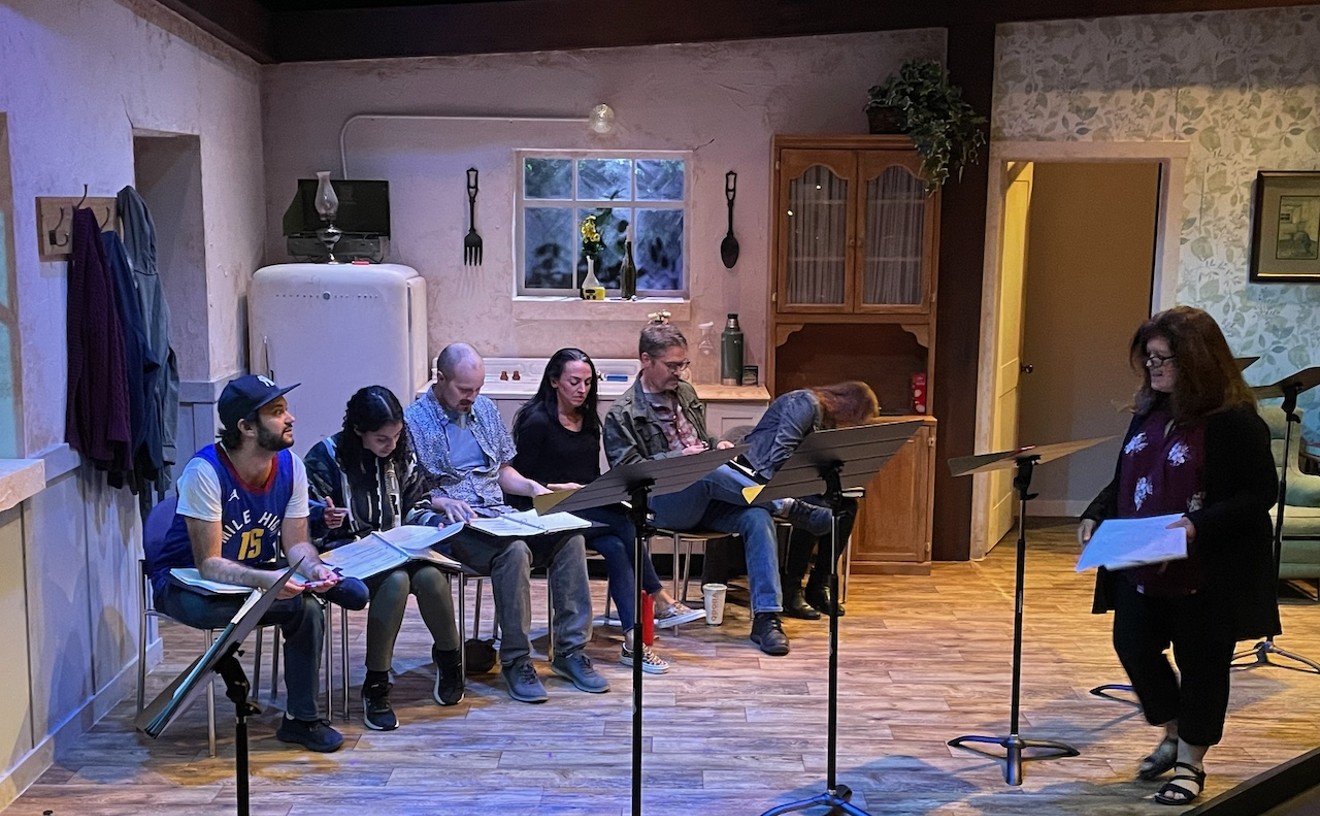The king of dysfunctional family drama, Williams made a career of exposing the tender innards of a still-graceful, decadent Old South as something more vital and brutal arose to replace it. Mothers are largely to blame, but plenty of absent or overbearing dads have made a mess of their offspring's lives as well. Fragile women languish near madness. Men seethe with rage. Sexual nightmares accompany most of these stories, whether from repression or indulgence, exploitation or passivity. Heterosexual or homosexual, sex is a big, big problem for almost all of Williams's characters. But only in Suddenly Last Summer is its excess punished in cannibal execution.
The play's central character never appears on stage. Sebastian Venable died in a mysterious incident the previous summer, and his doting mother, the rich Mrs. Venable, tries every nasty trick in the book to prevent the actual circumstances of his death from reaching public consumption (as it were). Her evil eye is turned on the delicate Catherine, her niece by marriage, who saw Sebastian get his. The old witch has had Catherine incarcerated in a series of mental hospitals because the girl insists on telling everyone her fantastic story.
So determined is Mrs. Venable to preserve her son's memory from tarnish that she tries to bribe a controversial doctor into giving Catherine a lobotomy. She keeps Catherine's mother and brother on a short financial leash, demanding their cooperation in subduing the doomed maiden. But the doctor shoots Catherine up with truth serum and makes her tell all.
And a tedious story it is. The death of a precious mama's boy--a "poet" who writes but one poem a year and surrounds himself with only the most beautiful people and things--is, of course, as ugly, brutish and absurd as possible. And she who tells the truth is hounded into madness. It was ever thus.
Suddenly Last Summer presents a host of problems the most accomplished and experienced actors would find insurmountable. Catherine's interminable monologue in which she reveals the awful details of Sebastian's death would give even Meryl Streep an impossible stretch. Jolene Andersen, a lovely woman with a good voice, nails the frailty of Catherine, but can't sustain the slow revelation of horror required of the role. Fiona MacDonald likewise captures the aristocratic bearing of Mrs. Venable and some of her dark obsession. But evil as naked and manipulative as the character exudes never surfaces in MacDonald's performance.
It's a shame that the Victorian company went for such infeasible material. The viewer can see talent there, given some cultivation and some progressive effort--and the fact that they simply are not up to Williams's bleakest nightmare is not difficult to understand. But neither is it easy to watch.
The second play of the evening fares much better. Something Unspoken is a delicate, two-actress exercise that requires wit and timing to pull off. Sexual repression takes stage center again; this time, an older rich lady tries to tell her companion and secretary what she feels for her. Kathryn Peterson brings to the imperial Miss Cornelia Scott the harassed dignity of Old Southern gentry and the fragile self-esteem of the perpetually unrequited. It's a solid performance, aching and sad and just a little cruel.
Laura Booze plays Miss Grace Lancaster as a passive mouse, but under all that passivity is the will to resist as well as the green cool of envy toward her employer's power. In this second piece, the material is well suited to the company, and the company does very well with it. Which is as it should be.
The Garden District, two one-act plays by Tennessee Williams, through March 5 at the Denver Victorian Playhouse, 4201 Hooker Street, 433-4343.










